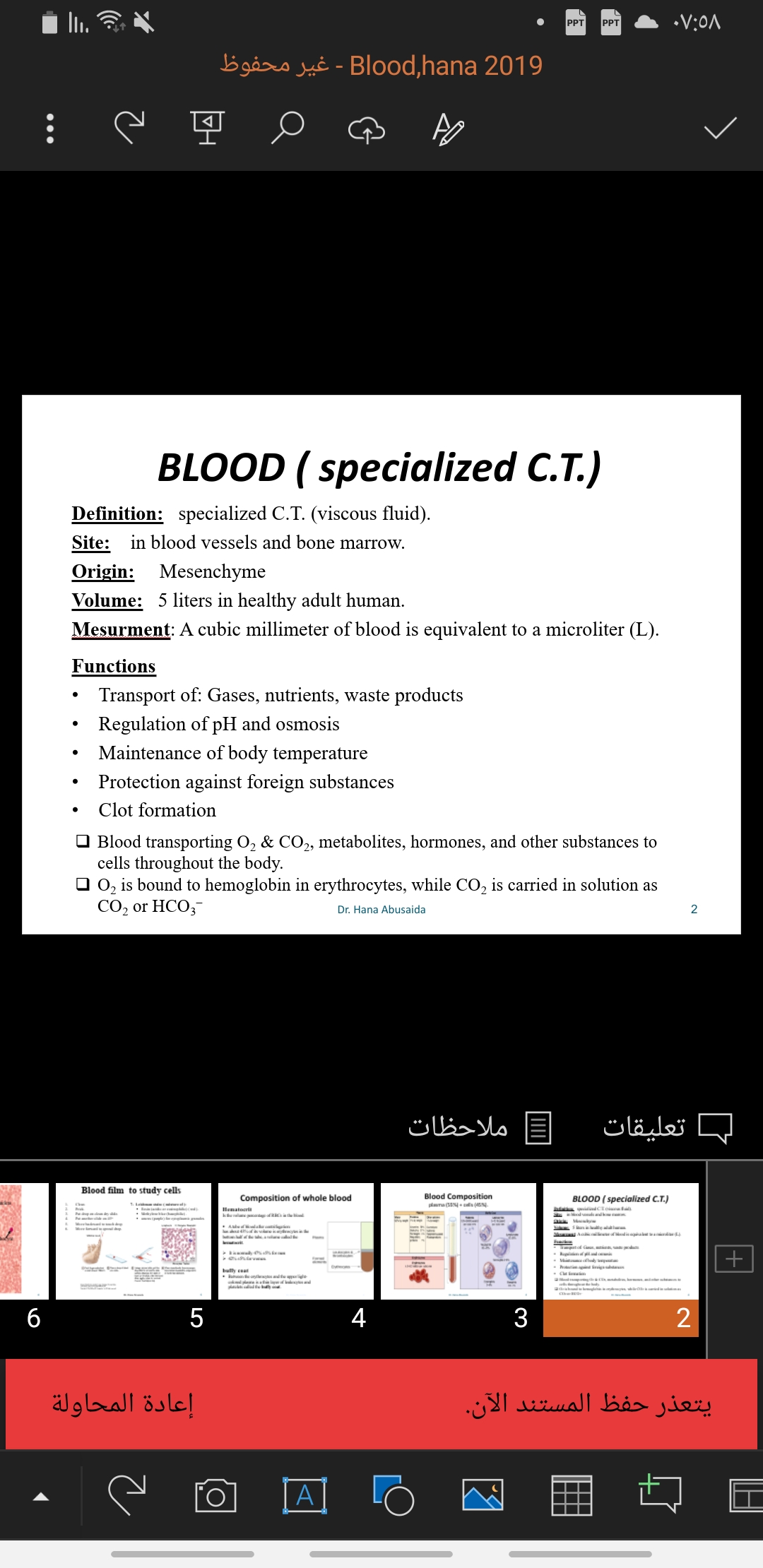What is blood and what are its functions?

Understand the Problem
The question provides information about blood, including its definition, site, origin, volume, measurement, and functions. It asks for a summary or explanation related to this medical topic.
Answer
Blood transports nutrients and gases, regulates pH, maintains temperature, provides immune defense, and forms clots.
Blood is a specialized connective tissue that is viscous in nature, found in blood vessels and bone marrow. It performs functions such as transporting gases, nutrients, waste, and hormones, regulating pH and osmosis, maintaining body temperature, providing immune protection, and forming clots.
Answer for screen readers
Blood is a specialized connective tissue that is viscous in nature, found in blood vessels and bone marrow. It performs functions such as transporting gases, nutrients, waste, and hormones, regulating pH and osmosis, maintaining body temperature, providing immune protection, and forming clots.
More Information
Blood is crucial for life, constantly circulating to maintain homeostasis and protect against infections. Plasma, red and white blood cells, and platelets work together in this complex transport and defense system.
Tips
A common mistake is overlooking the multi-functional role of blood beyond just oxygen transportation. Remember its roles in immunity, temperature regulation, pH balance, and waste removal.
Sources
- Blood: Function, What It Is & Why We Need It - Cleveland Clinic - my.clevelandclinic.org
- Blood: Components, functions, groups, and disorders - medicalnewstoday.com
- Blood | Definition, Composition, & Functions | Britannica - britannica.com
AI-generated content may contain errors. Please verify critical information